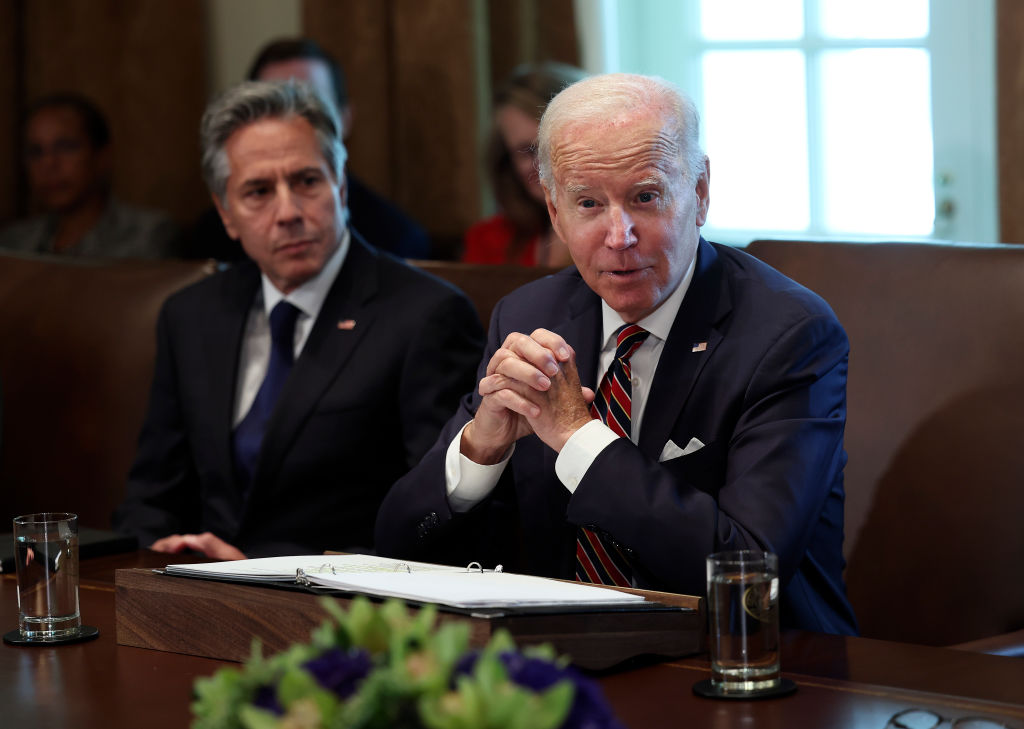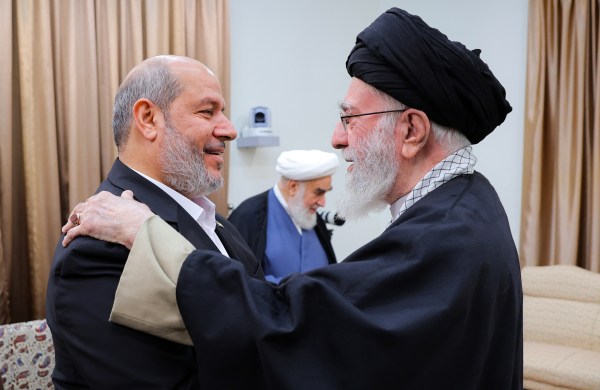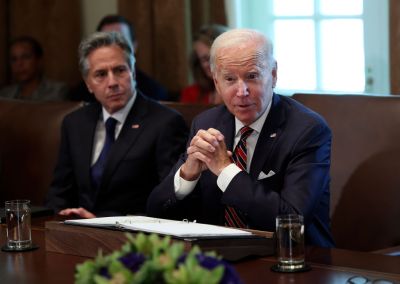Stephen Troell, a U.S aid worker from Tennessee, was shot dead by unknown assailants while he drove through Baghdad last week with his wife and daughter in the car. A little-known militia claimed responsibility for the murder, calling it revenge for the U.S. airstrike that killed Iranian Maj. Gen. Qassem Suleimani more than two years ago. Troell’s death is a test of whether President Joe Biden is prepared to hold Iran’s clerical dictatorship accountable for the killing or attempted killing of American civilians—a test he has failed before.
In August, the Department of Justice unsealed charges against a member of Iran’s Islamic Revolutionary Guards Corps for offering an assassin $300,000 to kill John Bolton, who served as U.S. national security adviser in 2018-2019. The Iranian agent told an informant he wanted Bolton to die before the anniversary of Suleimani’s death.
A month earlier, federal prosecutors announced charges against five Iranians for a conspiracy to kidnap Masih Alinejad, a U.S. citizen, journalist, and human rights activist born in Iran. The defendants planned to abduct Alinejad near her home in Brooklyn and take her to Iran.
The response to these attacks should have been a show of force that exacted a heavy price from the Revolutionary Guards and their accomplices. Instead, Biden at the time remained fixated on his pursuit of a nuclear deal with Tehran, continuing to offer hundreds of billions of dollars of sanctions relief if Iran imposes temporary restraints on its nuclear program. The proposed deal does not have effective monitoring and enforcement provisions, so Iran can reap the financial rewards of an agreement without surrendering its nuclear option.
For the moment, a nuclear deal is off the table amid Tehran’s bloody suppression of anti-regime protests. Yet Secretary of State Antony Blinken has signaled a readiness to resume talks at a more favorable time. Last month, he rejected a Canadian interviewer’s contention that negotiating with the regime would legitimize its atrocities. Thus, the administration likely remains hesitant to punish Tehran forcefully for Troell’s murder.
In the years since the U.S. toppled Saddam Hussein in 2003, Iran has built a network of Shiite militias that are beyond the control of Iraq’s central government in Baghdad but have also infiltrated state institutions and benefit from government funding. Some of the militias have political arms that win significant numbers of seats in parliament, but this is no sign of commitment to the democratic process. Rather, it advances the militias’ goal of ensuring the Iraqi people cannot expunge Tehran’s influence either by voting or by exercising their civil rights. In 2018, when hundreds of thousands of Iraqis mounted peaceful demonstrations against both corruption and Iranian influence, Suleimani flew into Baghdad to help coordinate a violent crackdown by the militias that took hundreds of protesters’ lives.
The group that claimed responsibility for the Troell killing is Ahl al-Kahf, also known as Ashab al-Kahf, which became active in 2020, claiming responsibility for a roadside bomb attack on an American military convoy. A militia network later described Ahl al-Kahf as one of 15 groups that came into existence in 2020 to avenge the death of Suleimani.
The proliferation of these militias is mostly an illusion. Little-known groups often take credit for attacks to provide a measure of plausible deniability for more influential militias, such as Asaib Ahl al-Haq and Kataib Hezbollah—both of which the U.S. government has designated as foreign terrorist organizations. Control remains in the hands of a small number of Iraqi leaders who ultimately answer to Iran’s Revolutionary Guards.
Like their Iranian patrons, the militias are patient in seeking revenge. They also seek to demonstrate to others that they have a long memory and the means to act on their grudges. But killing one American is not enough to satisfy them. For the militias, Suleimani was a living legend before he became a martyr.
Americans, including many in the Biden administration, tend to believe there must be a way to resolve our country’s differences with such adversaries, rather than striking back and inviting further retaliation. Surely they want peace, too.
That assumption is incorrect. As Hassan Nasrallah, the secretary general of Lebanese Hezbollah said in 2004, “We will win because they love life and we love death.” Martyrdom is the greatest good for those who follow the path of Iran’s clerical dictatorship. Nonetheless, Hezbollah and its Iraqi counterparts strongly prefer to die while striking heavy blows against their enemies, not laying down their lives in futile gestures.
That is why American retaliation can serve as an effective deterrent. The White House should strike back hard at both Iraqi militia leaders and their Revolutionary Guard handlers. That is the best way of saving the next American targeted by Iran, whether a former national security adviser or an aid worker from Tennessee.






Please note that we at The Dispatch hold ourselves, our work, and our commenters to a higher standard than other places on the internet. We welcome comments that foster genuine debate or discussion—including comments critical of us or our work—but responses that include ad hominem attacks on fellow Dispatch members or are intended to stoke fear and anger may be moderated.
With your membership, you only have the ability to comment on The Morning Dispatch articles. Consider upgrading to join the conversation everywhere.